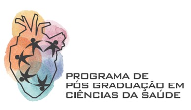Banca de QUALIFICAÇÃO: REMITA VIEGAS VIEIRA
Uma banca de QUALIFICAÇÃO de MESTRADO foi cadastrada pelo programa.STUDENT : REMITA VIEGAS VIEIRA
DATE: 27/03/2024
TIME: 14:00
LOCAL: Remota (Google Meet - meet.google.com/jqj-qqhz-fbj)
TITLE:
ETHNOBOTANICAL INVENTORY RELATED TO THE USE OF CONTRACEPTIVE METHODS BY RIPARIAN WOMEN IN THE LOWER TAPAJÓS REGION, SANTARÉM, PARÁ
KEY WORDS:
Contraceptive Methods; Riverine Women; Family Planning; Women's Health; Medicinal Plants; Ethnobotany
PAGES: 38
BIG AREA: Ciências da Saúde
AREA: Farmácia
SUBÁREA: Farmacognosia
SUMMARY:
INTRODUCTION: Family planning is a formative right of the population, through which individuals can obtain guidance, information, and access to contraceptive methods through public services such as the Unified Health System (SUS), which provides the necessary resources. The use of contraceptive methods has increased rapidly in recent years, among other reasons, due to greater access to information and increased participation of women in various social spaces. However, women residing in isolated regions still suffer from the lack of regular essential public services, which hinders the proper implementation of programs dedicated to women's health maintenance, making it difficult to access contraceptive methods, resulting in various constraints that may affect knowledge about family planning and rights regarding the care provided. In many cases, they resort to traditional knowledge, using medicinal plants as a form of contraception. OBJECTIVES: To identify contraceptive practices related to medicinal plants used by adult women living along the Tapajós River in fertile age residing in the Santarém region, Pará, through an ethnobotanical survey. METHODOLOGICAL PROCEDURES: This is a quantitative, descriptive, and exploratory cohort study to be conducted with riverine women from September 2023 to October 2024, who have used some contraceptive method between 2010 and 2023, offered by SUS or those used based on empirical knowledge such as medicinal plants and other natural resources, and who have not undergone any definitive method. Data collection will be carried out in the field, after approval from the ethics committee (CEP), in the Tapajós River communities served by Abaré, from the Federal University of Western Pará (UFOPA). Ethnobotanical data collection will be based on questionnaires administered to women at the Abaré I Basic Health Unit, after signing the Informed Consent Form (ICF), and from these interviews, information will be obtained regarding medicinal plants for contraceptive purposes and other contraceptive methods used by women from riverine populations between 2010-2023. The species mentioned will be preferably identified using the taxonomic clues method. EXPECTED RESULTS: Specify the contraceptive methods used by riverine women, as well as the availability of these methods for this population for family planning. With this knowledge, it may be possible to identify plants with medicinal properties, which may ultimately lead to the preservation of these species in the region.
COMMITTEE MEMBERS:
Presidente - ***.643.959-** - LEOPOLDO CLEMENTE BARATTO - UFPR
Interna - 2139720 - KARIANE MENDES NUNES
Externo à Instituição - DANILO RIBEIRO DE OLIVEIRA - UFRJ




